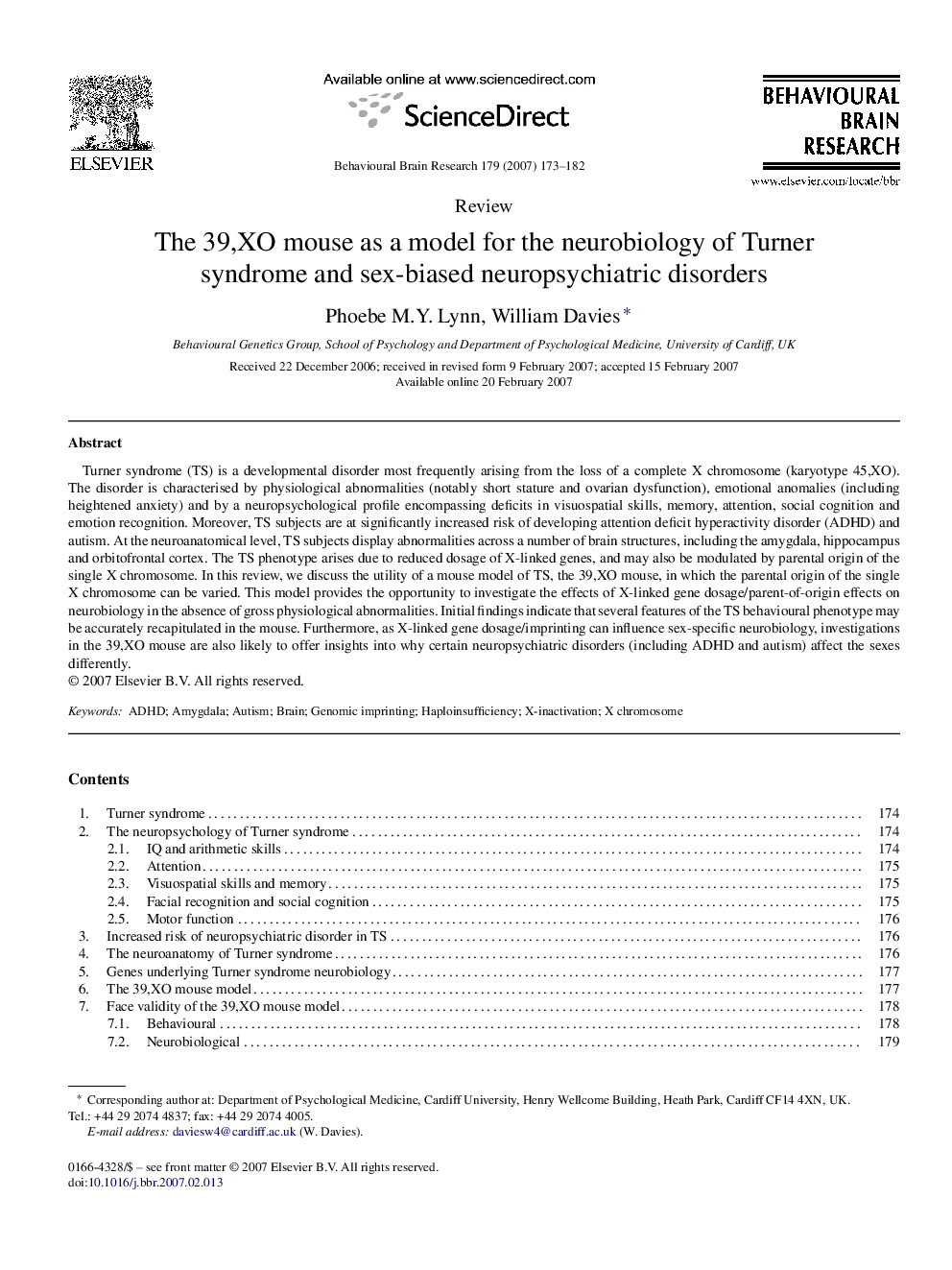| Article ID | Journal | Published Year | Pages | File Type |
|---|---|---|---|---|
| 4315664 | Behavioural Brain Research | 2007 | 10 Pages |
Turner syndrome (TS) is a developmental disorder most frequently arising from the loss of a complete X chromosome (karyotype 45,XO). The disorder is characterised by physiological abnormalities (notably short stature and ovarian dysfunction), emotional anomalies (including heightened anxiety) and by a neuropsychological profile encompassing deficits in visuospatial skills, memory, attention, social cognition and emotion recognition. Moreover, TS subjects are at significantly increased risk of developing attention deficit hyperactivity disorder (ADHD) and autism. At the neuroanatomical level, TS subjects display abnormalities across a number of brain structures, including the amygdala, hippocampus and orbitofrontal cortex. The TS phenotype arises due to reduced dosage of X-linked genes, and may also be modulated by parental origin of the single X chromosome. In this review, we discuss the utility of a mouse model of TS, the 39,XO mouse, in which the parental origin of the single X chromosome can be varied. This model provides the opportunity to investigate the effects of X-linked gene dosage/parent-of-origin effects on neurobiology in the absence of gross physiological abnormalities. Initial findings indicate that several features of the TS behavioural phenotype may be accurately recapitulated in the mouse. Furthermore, as X-linked gene dosage/imprinting can influence sex-specific neurobiology, investigations in the 39,XO mouse are also likely to offer insights into why certain neuropsychiatric disorders (including ADHD and autism) affect the sexes differently.
